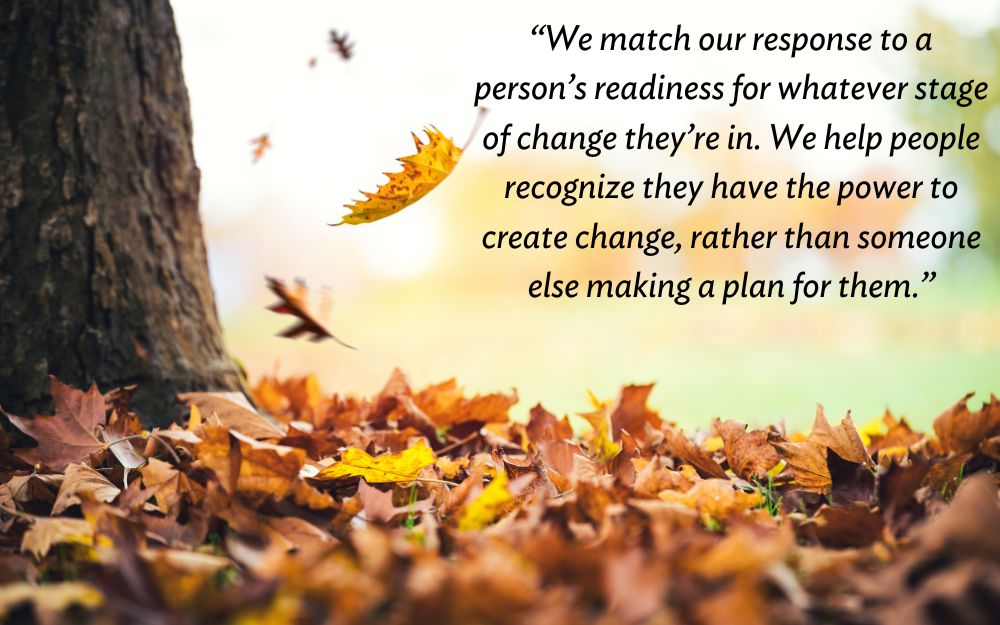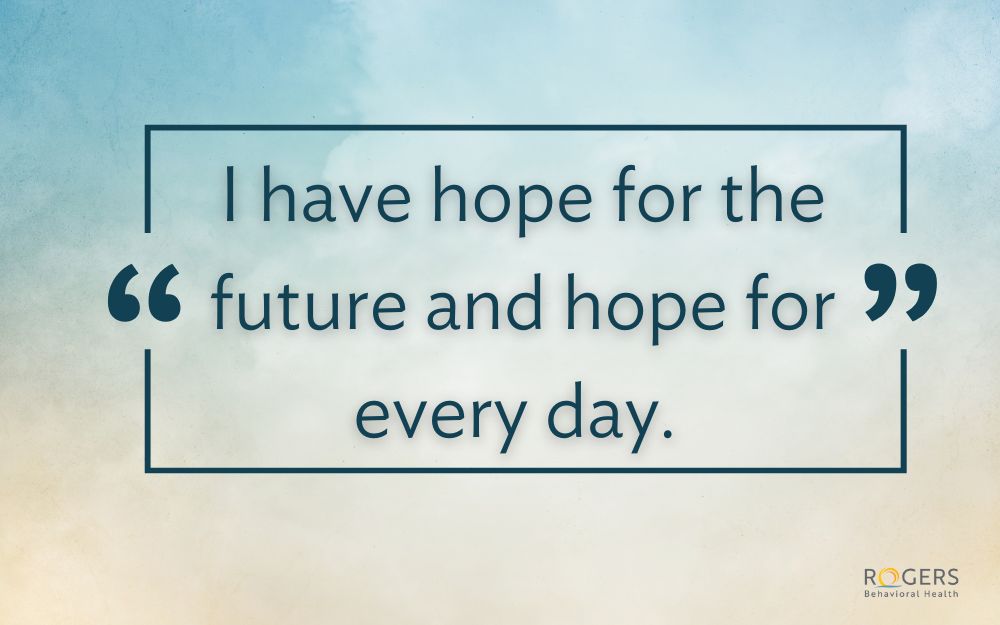Motivational interviewing: Helping to make lasting change
Posted on 09/11/24 08:12:am
Share this article:
Empowering people to make change
At Rogers, we seek to empower people to change their thoughts and behaviors by working with them to find meaning and understand the importance of the changes they want to want to make. We are patient focused, meeting people where they are.
Over the past four decades, motivational interviewing (MI) has developed as a way of engaging with people in treatment to help them facilitate behavioral change by letting them set the pace. Oftentimes, people seek treatment while
At its foundation, MI requires:
- Empathy
- Compassion
- Understanding
- Commitment to the person seeking help
Example of motivational interviewing
We match our response to a person’s readiness for whatever stage of change they’re in. We help people recognize they have the power to create change, rather than someone else making a plan for them.
For example, say someone is court ordered to treatment, and they're not sure they want to make any changes. We can utilize motivational interviewing to help them identify that maybe the goal for them is to not be court ordered to treatment anymore and that’s okay. It's not for us to say that they have to change a certain behavior or do a specific thing.
Motivational interviewing questions
We’ll help them take that first step toward change by asking:
- What are your values?
- Is there a discrepancy between your needs or values and your current actions?
- How can we help you align your values and behaviors?
Principles of motivational interviewing
MI requires a spirit of:
- Partnership – collaborating with the people in our care
- Acceptance – being affirming, showing respect, giving people freedom to make their own decisions
- Compassion – caring about people
- Evocation – bringing out each individual’s wisdom and desire for change
Promoting change
MI involves enabling people to explore their own thoughts, attitudes, interests, and values in a way that is meaningful, intentional, and goal directed. When people come to us for treatment, they typically don’t know what they need in the moment. Instead of telling them what they need and what they should do, we’re committed to working with them to discover what’s already there, but sometimes hidden below the surface. They just need someone to help bring it out.
When it comes to addiction, substance use treatment has traditionally involved abstinence-only models and the idea that in order to get well, you have to be abstinent right away. MI allows us to work with someone who is ambivalent about change. Maybe they don’t want to quit smoking marijuana, but they are willing to stop using heroin or fentanyl which is a more deadly substance. By using MI, we can help them achieve what they want and need to in that moment, then work with their hesitation on the marijuana use. We’re not going to say you can’t stay in treatment because you’re not doing it “our” way. MI normalizes uncertainty and validates where the person is, so whatever they’re going through, or whatever their mindset is, it’s okay. We are going to work with them not against them. We help each person find their path to recovery, which includes allowing people to define what recovery looks like.
Maintaining change beyond treatment
We work with people to uncover their skills, strengths, experiences, and reasons for change. By helping them see, strengthen, and respond to their motivation for change, there’s often an increase in desire, readiness, and commitment to change. By supporting people in working toward their own goals, we’re helping them live a life that's in alignment with those goals and values.
If someone who likes donuts is told to stop eating them because they’re not good for their health, they might agree and be able to do that, but probably only for the short term without their own motivation for doing it. The decision to stop eating donuts wasn’t their idea so they likely haven’t bought into that goal 100%. Unless a person truly values their health and is the one making the decision to stop eating donuts because they want to make the change, it won’t last. We use MI to put the power and the plan to change into the hands of the people in our care. Their treatment is not rooted in our intention to place our agenda on them. Treatment goals and objectives are based on whatever is important to them so that when we leave the equation, their motivation, goals, and values are what they're left with which allows them to continue on a positive trajectory without us.
Rogers offers mental health and addiction treatment
If you or a loved one needs mental health or addiction treatment, Rogers offers compassionate care in a growing number of communities nationwide. Call 800-767-411 to get started with a free, confidential screening.



